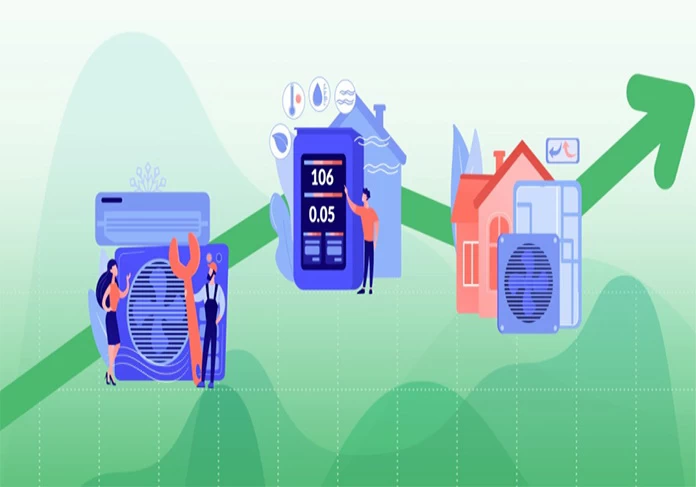FileByt – The HVAC industry is vital in keeping homes and businesses comfortable all year round. But beyond technical expertise, success in this field hinges on strong customer relationships. This is where HVAC CRM software comes in, offering a powerful tool to streamline operations, boost efficiency, and, ultimately, grow your business.
What is HVAC CRM Software?
CRM HVAC software is an all-in-one powerhouse designed to streamline operations and propel HVAC businesses toward success. It fuses Customer Relationship Management (CRM) with industry-specific functionalities, providing a central hub to manage everything from customer interactions to field service operations.
Importance of HVAC CRM for Small businesses
- Customer Management: CRM software allows HVAC businesses to organize and manage customer information effectively. This includes contact details, service history, preferences, and specific requirements. This readily available information helps deliver personalized service and build long-term client relationships.
- Scheduling and Dispatch: HVAC companies often deal with multiple service calls and appointments daily. CRM software enables efficient scheduling and dispatching of technicians based on availability, location, and expertise. This ensures timely response to customer inquiries and service requests, leading to higher satisfaction levels.
- Service History Tracking: With CRM HVAC software, businesses can keep track of the service history for each customer, including past repairs, maintenance schedules, and equipment installations. This historical data provides valuable insights into customer needs and helps offer proactive maintenance services.
- Sales and Marketing: CRM tools come with features to manage sales leads, track opportunities, and analyze customer trends. HVAC businesses can use this data to target marketing campaigns effectively, identify upselling or cross-selling opportunities, and ultimately increase revenue.
- Workflow Automation: Automation features in CRM software streamline repetitive tasks such as invoicing, payment reminders, and follow-up emails. This frees up time for HVAC professionals to focus on core activities like servicing equipment and meeting customer needs.
Benefits of using HVAC CRM for Small Businesses
- Improved Efficiency: CRM software helps small HVAC businesses operate more efficiently by centralizing customer data and automating routine tasks. This leads to time savings, reduced administrative overhead, and increased productivity.
- Enhanced Customer Service: With access to comprehensive customer profiles and service histories, HVAC businesses can deliver personalized and responsive service to clients. This fosters trust, loyalty, and positive word-of-mouth referrals, which are crucial for small businesses.
- Better Business Insights: CRM tools provide valuable insights into customer behavior, service trends, and business performance metrics. Small HVAC businesses can leverage this data to make informed decisions, optimize processes, and identify areas for growth and improvement.
- Scalability: As small HVAC businesses grow, CRM software can scale alongside them, accommodating increasing customer volumes and expanding service offerings. This scalability ensures that businesses can effectively adapt to changing market conditions and customer demands.
- Competitive Advantage: In a competitive market, small HVAC businesses that leverage CRM software gain a competitive edge by offering superior customer service, streamlined operations, and targeted marketing initiatives. This can help them attract and retain customers amidst stiff competition.
Features HVAC CRM
HVAC CRM can be a game-changer for business, streamlining operations and boosting customer satisfaction. Here are key features to keep an eye out for, going beyond the basic functionalities of a general CRM:
- Customer Management: Efficiently manage customer profiles, including contact information, service history, equipment details, and preferences. A comprehensive CRM should allow you to easily access customer data to personalize interactions and provide better service.
- Scheduling and Dispatching: An effective scheduling and dispatching system is essential for managing appointments, assigning technicians, and optimizing routes. Look for a CRM that offers drag-and-drop scheduling, real-time updates, and the ability to assign tasks based on technician availability and skill set automatically.
- Mobile Accessibility: Technicians often work in the field, so mobile accessibility is crucial. Choose a CRM with a user-friendly mobile app that allows technicians to access customer information, update job status, and capture essential data on-site.
- Service History Tracking: Track past service calls, repairs, maintenance tasks, and equipment installations for each customer. A robust service history feature lets you track warranty information, identify recurring issues, and provide proactive maintenance recommendations.
- Inventory Management: Integrating inventory management into your CRM ensures you have the right parts and equipment available when needed. This feature helps track stock levels, manage reordering, and link parts usage directly to service jobs for accurate billing.
- Quoting and Invoicing: Simplify the quoting and invoicing process with built-in tools that allow you to create professional quotes, estimates, and invoices directly from the CRM. Integration with accounting software streamlines financial processes and ensures accurate billing.
- Communication Tools: Facilitate seamless customer communication through integrated email, SMS, and notification features. Automated reminders for appointments, service follow-ups, and maintenance contracts help improve customer engagement and satisfaction.
- Reporting and Analytics: Comprehensive reporting and analytics tools can help you gain insights into your business performance. Track key performance indicators (KPIs) such as technician productivity, service revenue, customer satisfaction, and more to identify areas for improvement and make data-driven decisions.
- Integration Capabilities: Ensure your HVAC CRM can integrate with other essential business tools such as accounting software, marketing platforms, and equipment diagnostics systems. Seamless integration eliminates data silos and improves overall workflow efficiency.
- Customization and Scalability: Choose a CRM that can be customized to meet your specific business needs and can scale as your business grows. Look for flexible customization options, modular features, and scalability to accommodate changes in your business requirements over time.
Best HVAC CRM Software for Small Businesses
Here are 10 Best HVAC CRM for Small Businesses to streamline your operations and boost customer satisfaction:
1. Jobber CRM software
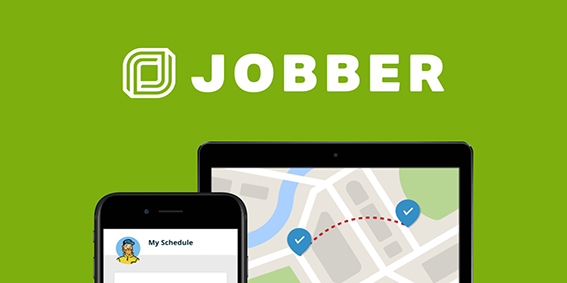
Jobber is a complete customer relationship management (CRM) software for service-based businesses. It provides many features to efficiently manage and enhance different aspects of running a service-oriented business, from scheduling appointments to invoicing clients.
- Overview: An all-in-one solution designed specifically for the needs of HVAC businesses.
- Key features: Streamline scheduling, dispatching, job management, invoicing, and customer communication.
- Pricing: Starts at $40 per user per month.
- Pros: Easy to use, integrates with popular accounting software, offers a free mobile app for technicians.
- Cons: Limited marketing automation features.
2. Housecall Pro
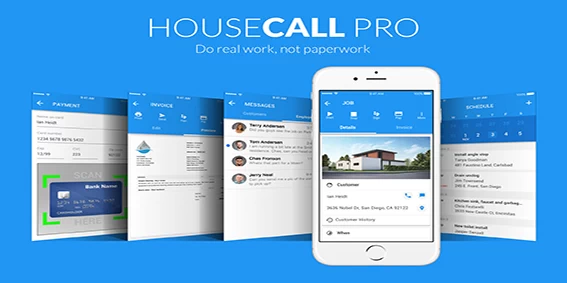
Housecall Pro is a comprehensive software platform designed to streamline and simplify business operations for home service professionals. Initially launched in 2013, Housecall Pro has quickly become a go-to solution for field service management across various industries, including plumbing, HVAC, electrical, carpet cleaning, landscaping, and more
- Overview: A user-friendly CRM built for home service businesses, including HVAC contractors.
- Key features: Online booking, appointment scheduling, job management, automated communication, and reporting.
- Pricing: Starts at $29 per user per month.
- Pros: Excellent calendar view for scheduling, integrates with Quickbooks, strengthens customer relationships through automated feedback requests.
- Cons: Lacks some advanced features for larger businesses.
3. FieldPulse
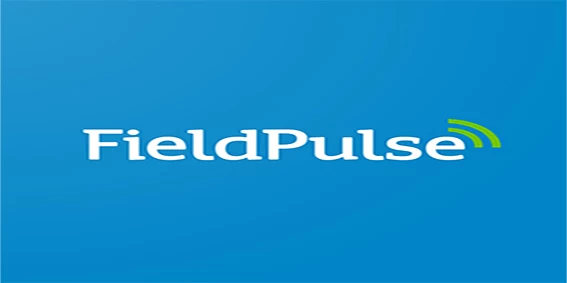
FieldPulse CRM is a comprehensive customer relationship management (CRM) platform designed specifically for service businesses. It offers a range of features tailored to meet the needs of field service professionals, contractors, and small businesses in construction, HVAC, plumbing, electrical, landscaping, and more.
- Overview: A comprehensive field service management solution that includes CRM features.
- Key features: Scheduling, dispatching, work order management, customer communication tools, and mobile app for technicians.
- Pricing: Contact FieldPulse for a quote.
- Pros: Powerful dispatching and job management features, as well as real-time tracking of technicians, parts, and inventory management.
- Cons: Steeper learning curve than other options, may be out of budget for tiny businesses.
4. Striven
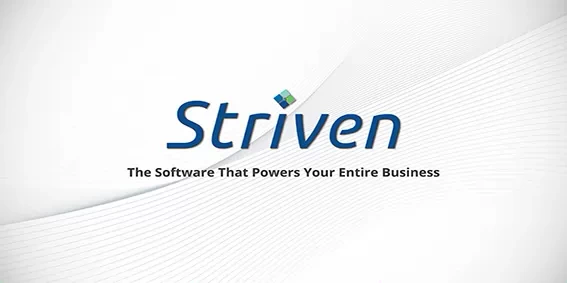
Striven is an all-inclusive customer relationship management (CRM) system that facilitates the administration and optimization of interactions between businesses, their clients, and potential customers. It provides extensive functionalities and features to optimize marketing endeavors and enhance customer service and sales procedures.
- Overview: An all-in-one ERP software for HVAC businesses, integrating CRM, accounting, project management, and more.
- Key features: Streamline all aspects of your business, from lead generation and customer management to job costing and service delivery.
- Pricing: Contact Striven for a quote.
- Pros: Unifies all business operations in a single platform, automates tasks, and offers a high level of customization.
- Cons: It may be overkill for tiny businesses and potentially complex to set up.
5. Nutshell
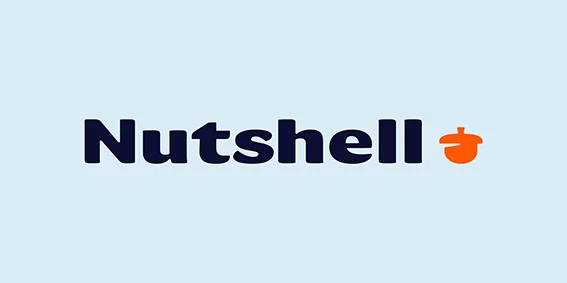
Nutshell is a comprehensive CRM system designed for small and midsize businesses. It offers a user-friendly interface, contact management, sales force automation, email tracking, task management, note-taking, pipeline management, forecasting, reporting modules, and basic customer service capabilities like ticket management.
- Overview: A user-friendly CRM that is a good fit for small and medium-sized businesses (SMBs), including HVAC contractors.
- Key features: Contact management, opportunity tracking, pipeline management, email marketing, and reporting.
- Pricing: Starts at $16 per user per month.
- Pros: Easy to use, affordable, offers a free trial.
- Cons: Lacks some of the advanced features of CRMs explicitly designed for the HVAC industry.
6. Method: Field Service Software
Field Service Software is a specialized category of customer relationship management (CRM) software designed specifically for businesses that provide field services. These services typically involve on-site installations, repairs, maintenance, and inspections. The software is tailored to meet the unique needs of field service companies, enabling them to streamline their operations, improve efficiency, and enhance customer satisfaction.
- Overview: A comprehensive solution includes CRM, job management, scheduling, and mobile capabilities.
- Key features: Streamline scheduling, dispatching, job management, invoicing, and customer communication.
- Pricing: Contact Method for a quote.
- Pros: Integrates with popular accounting software, offers a free trial, and emphasizes preventative maintenance.
- Cons: Limited free plan, may require training for more advanced features.
7. ServiceM8
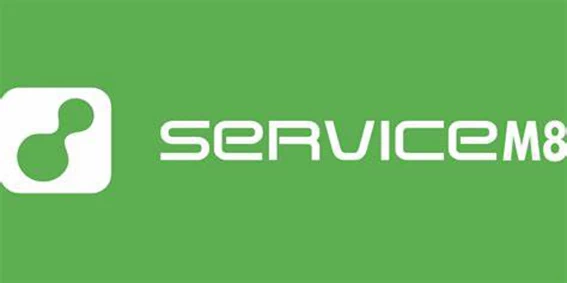
ServiceM8 is a cloud-based CRM software for small to medium-sized businesses in plumbing, electrical, and landscaping industries. It offers features like job scheduling, quoting, invoicing, and reporting while allowing businesses to track customer interactions, manage communication histories, and organize data for marketing purposes.
- Overview: A field service management solution that includes CRM features.
- Key features: Scheduling, job management, mobile app for technicians, customer communication tools, and reporting.
- Pricing: Starts at $49 per user per month.
- Pros: It has an easy-to-use interface that integrates with popular accounting software and offers a free trial.
- Cons: Lacks some of the advanced features of higher-priced options.
8. ServiceTitan
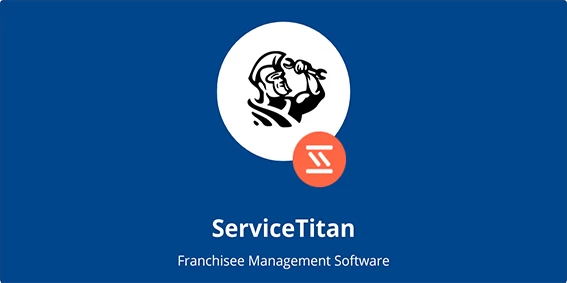
ServiceTitan is a CRM software system designed for the HVAC, plumbing, and electrical industries. It offers a comprehensive solution for scheduling, dispatching, invoicing, and customer communication, enhancing the efficiency and effectiveness of these businesses.
- Overview: A comprehensive solution designed specifically for the HVAC industry, including CRM features.
- Key features: Streamlines all aspects of your business, from lead generation and customer management to job costing and service delivery.
- Pricing: Contact ServiceTitan for a quote.
- Pros: Powerful features designed for the HVAC industry, automates tasks, and offers a high level of customization.
- Cons: It may be out of budget for tiny businesses and complex to set up.
9. Zoho CRM

Zoho CRM is one of the comprehensive software solutions designed to help businesses manage sales, marketing, and customer support activities. It offers features like contact management, lead management, sales pipeline management, workflow automation, reporting, analytics, email integration, and mobile CRM capabilities. Zoho CRM’s user-friendly interface, customizable workflows, and affordability make it a popular choice in the market.
- Overview: A popular CRM platform offering a free plan and paid tiers with sales, marketing, and customer service features. While not exclusively designed for HVAC, it can be customized for your needs.
- Key features: Contact management, opportunity tracking, pipeline management, email marketing, automation tools, and reporting.
- Pricing: Free plan available; paid plans start at $10 per monthly user.
- Pros: Affordable, free plan to test out features, scalable solution that can grow with your business.
- Cons: It may require customization to fit the specific needs of HVAC businesses and may have a steeper learning curve than some industry-specific options.
10. Cordium
Cordium CRM is a customer relationship management (CRM) software solution, likely developed by a company called Cordium. CRMs are used by businesses to manage interactions with current and potential customers. They typically include features for contact management, sales management, productivity tools, and reporting/analytics. Unfortunately, providing more information about Cordium CRM is easier with more context and specific details.
- Overview: A cloud-based field service management solution with CRM features for plumbing, electrical, and HVAC businesses.
- Key features: Work order management, scheduling, dispatching, mobile app, customer communication tools, and reporting.
- Pricing: Contact Cordium for a quote.
- Pros: Integrates with popular accounting software and offers features specifically applicable to HVAC contractors, like parts management and service agreements.
- Cons: It may be out of budget for small businesses with limited free plan options.
Remember, the best CRM for your business will depend on your specific needs and budget. Consider factors like the size of your business, the features you need most, and how easy the software is to use. Try out free trials or demos of a few different options before deciding.
Factors to Consider When Choosing HVAC CRM Software
Selecting HVAC CRM (Customer Relationship Management) software requires careful consideration of various factors to ensure it aligns with the unique needs of your HVAC business. Here are several key factors to consider:
Budget
- Determine your budget constraints and look for CRM solutions that offer pricing plans within your budget range.
- Consider both upfront costs and ongoing subscription fees.
- Look out for additional expenses, such as setup fees, customization fees, or charges for extra users.
Scalability
- Assess the scalability of the CRM software to ensure it can accommodate your business growth.
- Check if the software offers flexible pricing plans that allow you to scale up or down based on your needs quickly.
- Consider the maximum number of users, customers, and data storage capacity supported by the software.
Ease of Use
- Evaluate the user interface and navigation of the CRM software to ensure it’s intuitive and easy to use.
- Look for features such as drag-and-drop functionality, customizable dashboards, and clear navigation menus.
- Consider whether the software offers training resources or onboarding assistance to help users get up to speed quickly.
Customer Support
- Research the customer support options provided by the CRM software vendor.
- Check for availability of support channels such as phone, email, live chat, or online helpdesk.
- Look for reviews or testimonials from existing customers to gauge the quality and responsiveness of the vendor’s support team.
Integration Capabilities
- Assess the integration capabilities of the CRM software to ensure it can seamlessly connect with other tools and systems you use in your HVAC business.
- Check for pre-built integrations with popular accounting software, invoicing systems, project management tools, and HVAC-specific software.
- Consider whether the software offers APIs or customization options for building custom integrations.
Customization Options
- Evaluate the CRM software’s customization options to tailor it to your business needs.
- Look for features such as customizable fields, forms, workflows, and reporting templates.
- Consider whether the software allows you to create custom views, automate processes, and define user permissions according to your requirements.
Considering your priorities and requirements, you can effectively select HVAC CRM software that aligns with your budget, scalability needs, ease of use, customer support expectations, integration capabilities, and customization options.
Summary
HVAC businesses leverage CRM software to optimize customer interactions, automate workflows, and generate actionable data. This strategic tool empowers them to deliver exceptional customer service, foster loyalty, and drive sustainable growth. Its robust reporting and analytics capabilities provide valuable insights for optimizing processes, identifying upselling opportunities, and proactively addressing customer needs. HVAC CRM software is a cornerstone for operational efficiency, customer satisfaction, and long-term business success.

